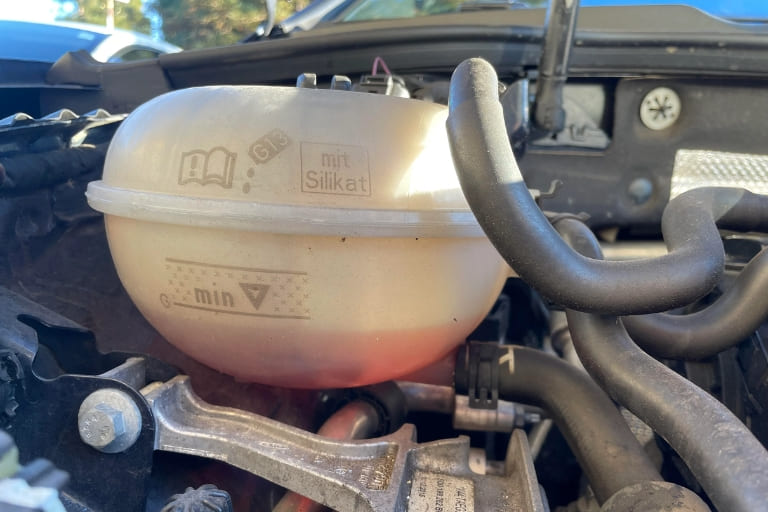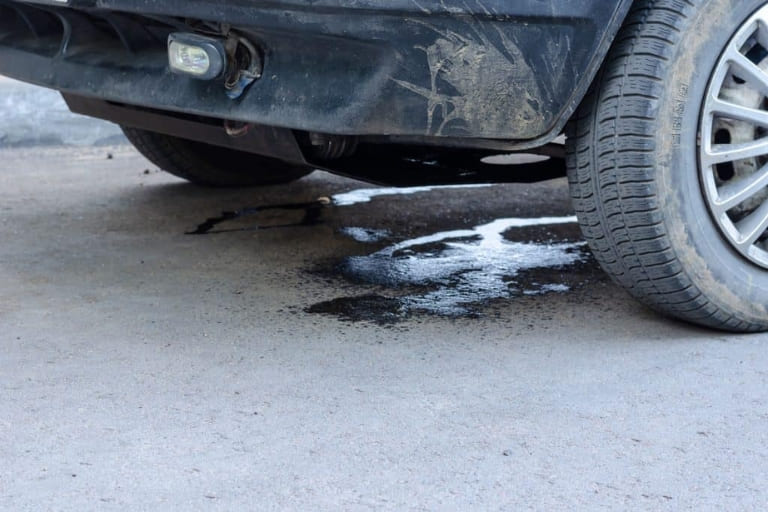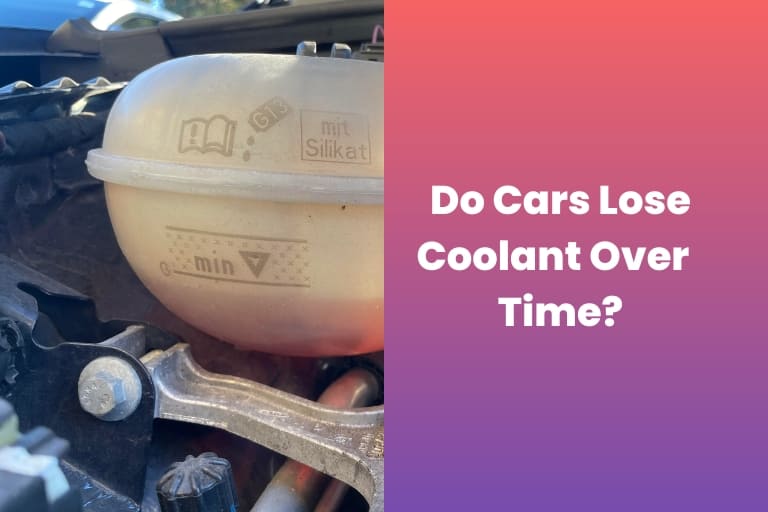Have you noticed your car losing coolant over time and are trying to figure out why? This is a common problem many car owners face, and if addressed, it can lead to severe consequences. Coolant loss can happen for various reasons, ranging from a small leak in the radiator to a damaged engine block.
Identifying the cause of the coolant loss and fixing it promptly to avoid damage to your car’s engine and overheating. This blog will discuss the common causes of coolant loss in cars, the warning signs to look out for, and how to address the issue before it becomes a bigger problem. By understanding the cause of the coolant loss, you can take the necessary steps to keep your car running smoothly and avoid costly repairs in the future.
Contents
do cars lose coolant over time?
Yes, automobiles may lose coolant over time. Coolant loss can occur for a variety of causes, including radiator or hose leakage, a broken engine block, or problems with the water pump. To minimize engine damage and overheating, keep an eye on your car’s coolant levels and rectify any losses as soon as possible.
How do vehicles lose coolant over time?

There are several factors that can contribute to coolant loss in vehicles. One of the most common reasons is through leaks. Leaks can occur in various cooling system components, such as the radiator, hoses, engine block, etc. These leaks can be caused by many factors such as corrosion, wear and tear, or damage to the components. Even minor leaks over time can accumulate and result in a significant loss of coolant, leading to severe engine problems.
Another cause of coolant loss is evaporation. The high engine and cooling system temperatures can cause the coolant to evaporate over time. This can lead to a gradual reduction in the coolant levels, leading to a need for topping off the coolant. The amount of evaporation will depend on several factors, including the type of coolant used, the temperature of the engine, and the length of time the engine has been running.
External leaks from the radiator hoses can also cause coolant loss. These leaks happen when the hoses deteriorate and split, enabling coolant to flow. Hoses near the engine or other hot parts of the car are especially prone to cracking, which can lead to external leaks.
To avoid these leaks, it is essential to regularly inspect the radiator hoses and replace them if they show signs of wear and tear. External leaks can be more challenging to detect than internal leaks, so it is vital to be vigilant and keep an eye on the coolant levels in your car.
Symptoms and Common causes of coolant loss

Symptoms
The following are common symptoms of coolant loss in a car:
- Engine Overheating: When a car’s coolant runs out, the engine might overheat. This happens because the coolant helps regulate the engine’s temperature, and the engine can get too hot without enough coolant.
- Low Coolant Level in the Expansion Tank: The expansion tank is where the coolant is stored in a car. If the coolant level in the tank is low, it is a sign that coolant is being lost.
- Glowing Coolant Warning Light: Many modern cars have a warning light that illuminates when there is a problem with the coolant system. If this light illuminates, it indicates that there is a coolant leak.
- Bubbles in the Radiator: If there is a coolant leak, it is possible to see bubbles forming in the radiator. This is a sign that the coolant is being lost and that there is a problem with the cooling system.
Common Causes
The following causes of coolant loss in a car:
- Slightly Cracked Hose: Over time, the rubber hoses in the cooling system can become brittle and crack, leading to coolant loss.
- Minor Radiator Hole: A small hole in the radiator might allow coolant to flow out. This might happen as a result of corrosion or other radiator damage.
- Water Pump Problem: The water pump is in charge of circulating coolant throughout the engine. If there is an issue with the water pump, coolant may seep out.
- Damage to Radiator Hoses: The radiator hoses can become damaged due to heat, age, or other factors. This can lead to coolant loss.
- Leakage Around the Radiator Cap: The radiator cap is in charge of keeping the cooling system at the proper pressure. If the cap is cracked or worn, coolant may seep out.
How to Fix Coolant loss over time?
Here are some solutions to fix coolant loss over time:
Fixing Leaks
If a leak is the cause of coolant loss, it is essential to locate the source of the leak and repair it as soon as possible. This may involve repairing or replacing a damaged hose, fixing a crack in the radiator, or replacing a faulty water pump. A mechanic can perform a pressure test on the cooling system to identify leaks and help you determine the best course of action.
Regular Maintenance
Regular cooling system maintenance, including checking and topping off the coolant levels, can help prevent coolant loss. A professional mechanic can visually inspect the hoses, radiators, and other cooling system components to identify any potential problems. Regular coolant flushing can also help keep the system clean and prevent the buildup of harmful deposits, which can lead to leaks and coolant loss.
Upgrading the Cooling System
Upgrading the cooling system can help prevent coolant loss. Installing a larger or more efficient radiator, using a high-quality coolant, and replacing old or damaged hoses can help keep the coolant in the system and prevent leaks. Additionally, a coolant recovery system can help keep the coolant levels in the expansion tank from dropping.
Monitoring the Engine Temperature
Monitoring the engine temperature can help detect coolant loss early on. An engine that is overheating, even slightly, is an indication of a coolant problem. Installing a temperature gauge or an engine temperature warning light can help you keep an eye on the engine temperature and address any problems early on.
Professional Diagnosis
If you are unsure what is causing coolant loss in your car, taking it to a professional mechanic for a diagnosis is a good idea. They can thoroughly inspect the cooling system and identify the cause of the problem, which will help you determine the best course of action to fix the issue and prevent future coolant loss.
Conclusion
In conclusion, coolant loss is a common problem in cars and can occur due to leaks, evaporation, and external leaks from the radiator hoses. The symptoms of coolant loss include engine overheating, a low coolant level, a glowing coolant warning light, and bubbles in the radiator.
Common causes of coolant loss include a slightly cracked hose, a tiny hole in the radiator, a water pump issue, damage to radiator hoses, and leakage around the radiator cap. It is crucial to fix any leaks, perform regular maintenance, upgrade the cooling system, monitor the engine temperature, and get a professional diagnosis if needed to fix coolant loss over time.
By addressing coolant loss promptly and taking the appropriate steps to prevent it, you can keep your car running smoothly and avoid costly engine damage.
You May Also Like the Following:
- 9 Signs You Need a Coolant Flush
- Can Low Coolant Level Cause a Check Engine Light?
- Why Is the Air Compressor Pushing Coolant Out?
- Coolant Under Pressure When Cold
- Coolant Coming Out of the Overflow
- Can You Put Ice in Your Coolant?
- No Coolant in the Radiator, but Reservoir Tank is Full
- Do Cars Lose Coolant Over Time?
- Is Inverter Coolant the Same as Engine Coolant?
Frequently Asked Questions
Is it normal to lose coolant over time?
Yes, it is normal for a car to lose coolant over time. Coolant can leak out due to cracks or leaks in the hoses, the radiator, or other cooling system components.
How long does coolant last in a car?
The lifespan of coolant in a car depends on various factors, such as the quality of the coolant, the conditions in which the car is driven, and the maintenance of the cooling system. On average, the coolant must be replaced every 2 to 5 years.
Does coolant get low over time?
Yes, coolant levels can decrease over time due to leaks or evaporation.
How fast does coolant run out?
The rate at which coolant runs out can vary, depending on the cause of the coolant loss. A small leak can result in a slow loss of coolant over time, while a large leak can cause the coolant to run out more quickly. To avoid engine damage, it’s crucial to monitor the coolant levels and take immediate action if any are lost.
